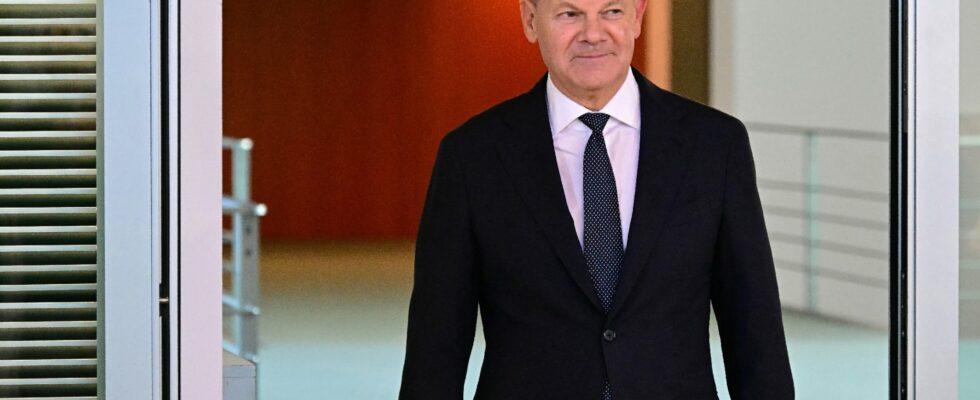Berlin in turn toughens its migration policy. German deputies adopted, this Friday, October 18, a bill which further closes the era of generous welcome opened in 2015 by former Chancellor Angela Merkel.
The vote came in parallel with a summit of the European Union, where the leaders of the 27 raised their voice against irregular immigration and called for an acceleration of expulsions. The bill must still be validated on Friday by the upper house of parliament to enter into force: it is part of a growing restrictive trend in Europe.
Berlin wants in particular to eliminate aid for asylum seekers who first entered another EU country, facilitate expulsions for refugees who have used weapons, limit the carrying of bladed weapons or even grant powers additional to law enforcement. Refugees who temporarily return to their country of origin will “generally” no longer have protection in Germany, as will those who commit anti-Semitic or homophobic crimes, according to the text.
Fight against “terrorism”
This “Security package” should make it possible to “improve internal security and the asylum system” but also “the fight against terrorism,” said Interior Minister Nancy Faeser.
Under pressure from the left wing of her own party, the social democratic minister nevertheless had to soften the most controversial measure of removing aid for asylum seekers who entered another EU country before coming to Germany. According to the so-called Dublin Regulation, the first EU country into which an illegal alien enters is responsible for their asylum application. A complete abolition of aid will thus be possible only if the departure of asylum seekers to the EU country where they first arrived “is legally and effectively possible”. It is also excluded in cases where children are involved.
The conservative opposition castigated a “largely ineffective” text, through the voice of Alexander Throm (CDU). On the other side of the political spectrum, radical left MP (Die Linke) Clara Bünger denounced a plan that was “inhuman and unworthy of a state of social law”.
The burning migration issue has occupied Olaf Scholz’s coalition for months, which has already reintroduced border controls in the face of an increase in the number of migrants. Like French head of state Emmanuel Macron, Chancellor Olaf Scholz has distanced himself from Giorgia Meloni’s Italy’s idea of transferring migrants to reception centers in third countries, in this case the Albania in the case of Rome. But Berlin is pushing its European partners to act against irregular immigration, while less than 20% of decisions to expel irregular migrants are followed up within the EU.
Knife attacks
The chancellor is under pressure in a context of growth of the far right, in Germany as elsewhere in Europe. The government presented its project in August in the wake of a triple knife murder by a Syrian suspected of links with the jihadist organization Islamic State during a party in Solingen (west). In June, another knife attack, attributed to an Afghan during an anti-Islam rally in Mannheim, left one dead, a police officer who had intervened.
These tragedies fueled the progress of the far-right AfD party, hostile to migrants, which won a regional election for the first time in September and achieved historically high scores in two others. The slogan of the conservative ex-chancellor’s reception policy, “Wir schaffen das” (“We will get there”), has never seemed so distant. During the 2015-2016 migration crisis, Europe’s largest economy welcomed more than a million refugees, including many Syrians. Since the Russian invasion of Ukraine in February 2022, Germany has taken care of around a million Ukrainian exiles who fled their country. Today the country has some 3.5 million asylum seekers. And many communities complain of no longer having the resources to provide reception.
